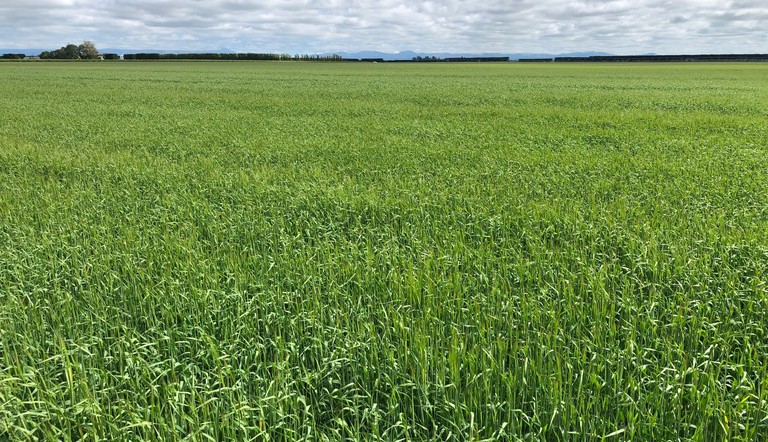
FAR keynote speaker promotes the use of multi-sites in cereals

New Ramularia-fighting tools available for this spring will be welcomed by barley growers battling the yield-robbing menace.
Now approved for Ramularia, crop protection company ADAMA NZ’s multi-site Phoenix has the backing of FAR trials, and of the collective expertise of international industry leaders.
Fiona Burnett, Professor of Applied Plant Pathology and Head of Knowledge and Innovation at Scotland’s Rural College, and a keynote speaker at the FAR conference in June, is an advocate of the use of multi-sites. She urged conference attendees to learn from the mistakes made in the UK, which experienced resistance in cereals a decade earlier.
FAR trials support Phoenix
FAR’s own New Zealand trials (FAR Crop Action Edition 134, 14. September 2018) showed that adding Phoenix to Proline® in a two-spray programme gave significantly better control of Ramularia than mixes of triazole with SDHI and, also, the highest yield.
Many farmers will already be aware of Phoenix, which has been used very successfully at T1 against Septoria in wheat.
For barley growers, the Ramularia label extension has come in the nick of time. In 2018/19, yield losses, from the disease, of up to 30% were reported locally. Predictions from the UK and Europe continue to be unrelentingly grim.
Ramularia resistance to key chemical groups in UK and Europe
Andy Bailey, Global Fungicide Expert and ADAMA UK Technical Specialist, had visited New Zealand as a guest of ADAMA NZ in 2017 and again in 2018 to share the Northern Hemisphere’s experience.
Reflecting on the UK’s, and Europe’s, most recent season he says growers are still facing major challenges. “For many, many years DMIs worked against Ramularia. Suddenly now, for whatever reason, we’ve reached a tipping point and in the UK, it has happened very rapidly. Currently we have Ramularia resistance to almost all key chemical groups.”
Multi-site Phoenix first in the tank
For Andy the message he shared with New Zealand cereal industry leaders and influencers a year ago, remains equally relevant today. “It’s still about a multi-site such as Phoenix being first in the tank for wheat and for barley.”
Folpet, the active in Phoenix, works against Ramularia at a cellular level, inhibiting spore germination and cell division, and reducing energy production in the mitochondria. It has the additional benefit of not inhibiting DMI uptake, ensuring their speed of action and their efficacy. Importantly, there is currently no known resistance to folpet anywhere in the world.
Programmed approach with Phoenix at T1 and T2
If only one spray of Phoenix is being applied, then T2 is the optimum timing for it. This ensures that leaves 2 and 3 are protected. For best results though and because we are still learning about the desease cycle, Andy advocates a programmed approach with Phoenix. “Data from the Northern Hemisphere shows that we're actually achieving even higher levels of Ramularia control when using Phoenix at T1 and at T2.”
ADAMA NZ also emphasises the importance of multi-sites in protecting existing chemistry and warns against any expectation of a “silver bullet” in the near future.
Partnering with Bolide®
Their recommendation is to partner Phoenix with Bolide or other triazole chemistry. Bolide is an all-rounder DMI fungicide, which provides broader spectrum control of key cereal diseases. Featuring an innovative combination of epoxiconazole and prochloraz, it is taken up via the stem and foliage and translocated upwards and outwards, providing some protection for new growth.
Find out more about how to win the cereal resistance battle with Phoenix and Bolide